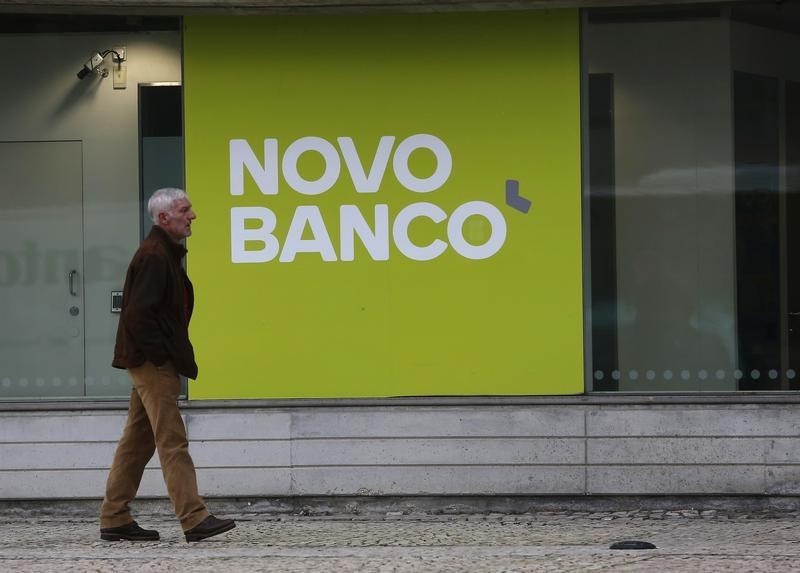LISBON (Reuters) - The Bank of Portugal on Friday relaunched the sale of Novo Banco after plugging a hole in the rescued lender's finances discovered during European stress tests and said it will invite financial consultants to assist in the process.
Last year, the central bank failed to sell Novo Banco, which was carved out of failed lender Banco Espirito Santo after a 4.9 billion euro state rescue in 2014, as bids came in too low with investors concerned about its liquidity and potential contingencies.
On Dec. 29, the central bank took a controversial decision to transfer nearly 2 billion euros in bonds from Novo Banco back to Banco Espirito Santo, making some investments nearly worthless, a decision private bondholders plan to challenge in courts.
The transfer was meant to plug a 1.4 billion euro capital shortfall identified by an ECB stress test after the rescue. The Bank of Portugal said at the time the solution should help to lure investors and sell Novo Banco on the second attempt.
In a statement on Friday, the financial authority said it will pick a model for the sale later. Sources close to the process have said there will likely be more options than just the sale of the bank's capital to one bidder as last year.
China's Fosun International (HK:0656), U.S. fund Apollo (N:APO) and China's Anbang Insurance Group Co reached the final bidding stages last year before the sale was suspended.
Speaking in parliament, Prime Minister Antonio Costa said the sale should be done "with time and serenity" to achieve good terms and "avoid the repetition of the previous setting when, seeking to sell the bank before the election, the state put it on the market under conditions that led to certain failure".
His government, which came to power in November, last month obtained a one-year extension from the European Commission to sell Novo Banco until August 2017.
Finance Minister Mario Centeno said on Thursday that the government was concerned with the solution found by the Bank of Portugal for Novo Banco's recapitalisation via bail-in.

Commerzbank (DE:CBKG) analysts said in a recent note that unequal treatment within a class of bonds, effectively giving most retail bondholders preferential treatment over largely foreign institutional ones, was worrying and threatened creditor safeguards under the European bank resolution regime. They expected investors to pursue legal challenges.